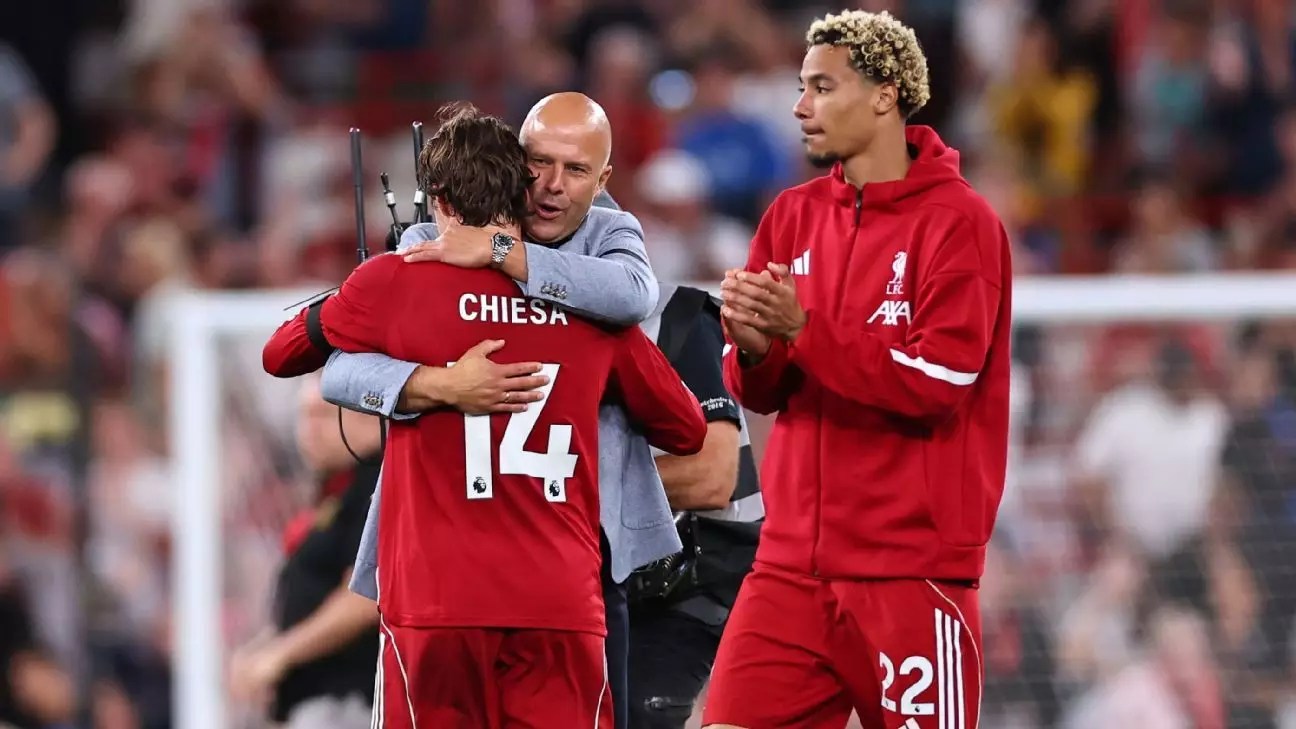Liverpool’s recent transfer activity exemplifies a club navigating the fine line between aggressive reinforcement and cautious management. Despite a summer splurge exceeding £300 million, the team’s management remains focused on a pragmatic approach. Under coach Arne Slot’s leadership, Liverpool signals an intent not to chase every opportunity but to act decisively if the right talent emerges. This stance suggests a philosophical evolution, prioritizing quality over quantity, especially after losing key players like Luis Díaz, Darwin Núñez, and Jarell Quansah.
Critically, this approach underscores confidence in the existing squad’s capacity, highlighting a belief that overloading the team with signings may risk imbalance. Slot’s remarks emphasize contentment with current personnel, emphasizing that an excess of new recruits often leads to disappointment and discontent. This perspective challenges the common narrative of a club always driven by abundance, positioning Liverpool as a club that values strategic acquisitions over impulsive spending.
The fact that Liverpool has already invested heavily signals a team in transition, yet the cautious tone from Slot indicates a tactical restraint. The club’s priority appears to be complementing the squad with perfect-fit players rather than unnecessary “firefighting” additions. Their history of bringing in players only when truly aligned with the club’s needs, such as Giovanni Leoni, underscores a disciplined scouting process and a focus on long-term stability.
Balancing Ambitions with Reality
Despite the club’s confidence, NFL-level engagement in top-tier signings is not guaranteed to continue unabated. The dilemma lies in the tension between a desire to evolve and the risk of overextending. Liverpool’s prudent stance also reflects an understanding of the complexities involved in transfer negotiations, especially amid the unpredictable flux of football markets. Slot’s comments reveal an internal acknowledgment that the squad, while strong, is not immune to tactical improvements, provided they are authentic upgrades that genuinely raise the team’s level.
The handling of the potential moves for Alexander Isak and Marc Guéhi further illustrates this delicate balance. While public speculation persists, the club prefers to keep negotiations discreet, focusing on building a team that is tactically cohesive. Liverpool’s strategy isn’t driven by a desperation to fill every vacancy but by an unwillingness to compromise their long-term vision for short-term fixes. This approach might be scrutinized by skeptics who constantly demand instant results but aligns with a broader philosophy of deliberate growth.
Upcoming Challenges and Tactical Focus
Liverpool’s upcoming Premier League fixture against Newcastle accentuates their need for tactical preparation. Slot’s comments point to a team aware of the intensity and quality of their opposition, referencing their previous encounters at St. James’ Park—a venue infamous for its electric atmosphere. The absence of Jeremie Frimpong’s injury and Conor Bradley’s return to training are minor but noteworthy squad updates that could influence tactical decisions.
More importantly, the focus on team cohesion and the mental resilience needed for such high-stakes encounters reflects a broader strategic mindset. The manager emphasizes the qualities of Newcastle’s players—particularly their technical ability and intensity—implying that Liverpool will need to match or surpass those standards. Such acknowledgment suggests that their tactical emphasis will be on disciplined structure and resilience, rather than relying solely on individual talent.
Liverpool’s transfer philosophy reveals an admirable blend of confidence and restraint. Rather than succumbing to market frenzy, the club appears committed to building a cohesive, competitive squad that can adapt to the rigors of the Premier League. By prioritizing quality over quantity and strategic patience, Liverpool’s leadership demonstrates a mature understanding of what it takes to sustain success amid financial and competitive pressures. This attitude not only positions them for immediate challenges but also signals a commitment to long-term excellence rooted in deliberate, thoughtful growth.


Leave a Reply